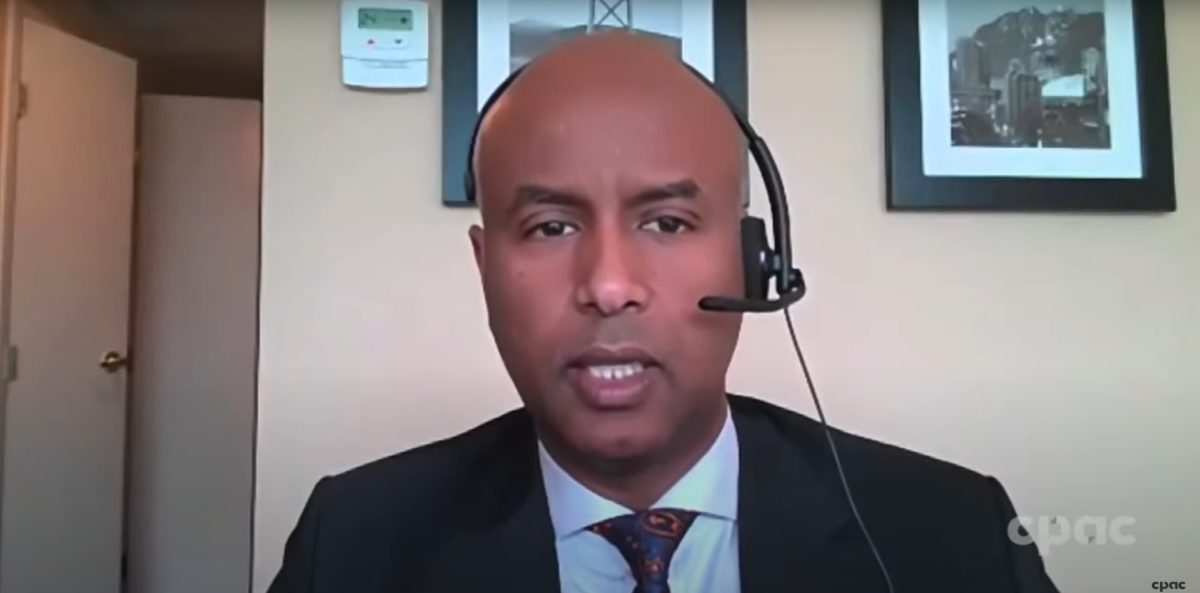A new educational toolkit is aiming to help students, parents, guardians, and teachers combat and prevent hatred in schools across Canada.
The 53-page toolkit, titled Confronting and Preventing Hate in Canadian Schools, looks at how to spot early signs of radicalization toward ideologies including white nationalism, anti-Black racism, anti-Indigenous racism, alt-right, antisemitism, islamophobia, misogny and anti-feminism, and anti-2SLGBTQIA+.
The toolkit was created as part of the Canadian Anti-Hate Network’s project, Containing and Countering Canadian Hate Groups, that reports on extreme right-wing activity in the country. It’s funded through the federal government’s Anti-Racism Action Program, which contributed $268,400 to the organization’s project.
“Because schools are hubs of our communities, they have become battlegrounds for hate-motivated organizing,” the toolkit reads. “The goal of this toolkit and its associated workshops is to supplement a comprehensive anti-racism education program. It will give you the tools to identify when a young person is consuming hate propaganda and is becoming radicalized, and to intervene as early as possible before the situation escalates.”
One harrowing statistic the toolkit highlights comes from a June 2020 report from the Institute for Strategic Dialogue, concluding that more 11 million people in Canada were reached by “6,600 right-wing hate-promoting social media pages, groups and accounts.”
“Adults often dismiss early indications of bigoted ideology as a student ‘pushing boundaries’ or ‘acting out,’ and while this might also be true, in many cases they are dismissing warning signs of a dangerous affiliation taking root,” the toolkit warns.
The toolkit looks back at the 2020 uprising following the murder of George Floyd by police and examined the white nationalist and propagandist reactions from Canadian hate groups, debunking myths and contextualizing the harms of their rhetoric in the process.
“White nationalists have a long history of believing that Black people are not able to lead movements themselves, and are being influenced by an “unknown power” (an antisemitic dog whistle referring to their belief in a Jewish cabal that controls everything),” the toolkit reads. It adds that as of 2020, 16 per cent of all hate crimes in Canada targeted Black communities.
The toolkit also analyzed the 2020 Wet’suwet’en rail blockades that resulted in threats of violence (and in some cases death) against Indigenous land and water defenders. These threats, documented on social media, included “violent and aggressive attempts to dismantle camps and blockades themselves.”
Along with case studies, the toolkit includes important statistics about the harms of hate in schools, noting that Toronto high schools are four times more likely to expel Black students than white students. The dropout rate for Black students in Toronto is 23 per cent. Even starker, Toronto police are 20 times more likely to shoot Black residents than white counterparts.
Anti-hate workshops coming to a school near you
The toolkit launched last week in a press conference held by Canadian Minister of Housing and Diversity and Inclusion, Ahmed Hussen, and Canadian Anti-Hate Network chair Bernie Farber.
“The increase of hate-motivated groups and ideologies is a disturbing reality in our country that we have a responsibility to address,” Hussen told reporters. He noted that the government is focused on creating meaningful solutions to confront and prevent hate.
Other speakers at the announcement included Liberal MP Paul Chiang (Markham-–Unionville) and Maryam Faisal, an anti-hate project manager with the Council of Agencies Serving South Asians, and Anti-Hate Network board member Nigel Barriffe.
Chiang, who also serves as Minister Ahmed’s parliamentary secretary, noted that while everyone in Canada deserves a fair chance at success, far too many people from marginalized communities experience bigotry, prejudice, and hate.
“No one should ever have to face the trauma and pain that comes from being discriminated against simply because of who they are,” he said.
Faisal pointed out that the overwhelming majority of young people in Canada have “unadulterated access” to the internet, growing even more common with the shift to online learning in the early days of the COVID-19 pandemic. As a result, she said that Canadian youth are more likely to experience hate online than other groups of people.
The publication of the anti-hate toolkit comes as the federal government is set to provide $85 million over four years to create a new Anti-Racism Strategy, as well as a National Action Plan on Combating Hate.
Along with the toolkit, the Canadian Anti-Hate Network is teaming up with schools across the country to hold anti-hate workshops. The organization is also making itself available at any time to help schools figure out how to address what Farber considers difficult and potentially dangerous situations.
“Many individuals who commit some of the most horrific acts of violence motivated by hate are in or just out of high school,” Farber told reporters.
For the Vice President of Professional Development at the Ontario School Counselors Association, Katrina Cove-Shannon, the toolkit and subsequent workshop served as a “crucial learning lesson” that revealed how many hate groups operate in Canada as well as their strategies and tactics used to engage and recruit youth.
“This workshop was presented to guidance counsellors, but it would be an important workshop for all educational staff so they can recognize the signs of a student moving into extremist thinking,” Cove-Shannon said in a press release. She added that the OSCA has booked another workshop in November in an effort to reach more participants.
The toolkit is available for free online at www.antihate.school.



